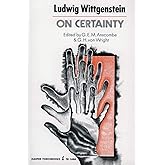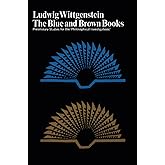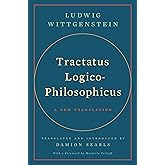
Amazon Prime Free Trial
FREE Delivery is available to Prime members. To join, select "Try Amazon Prime and start saving today with FREE Delivery" below the Add to Cart button and confirm your Prime free trial.
Amazon Prime members enjoy:- Cardmembers earn 5% Back at Amazon.com with a Prime Credit Card.
- Unlimited FREE Prime delivery
- Streaming of thousands of movies and TV shows with limited ads on Prime Video.
- A Kindle book to borrow for free each month - with no due dates
- Listen to over 2 million songs and hundreds of playlists
Important: Your credit card will NOT be charged when you start your free trial or if you cancel during the trial period. If you're happy with Amazon Prime, do nothing. At the end of the free trial, your membership will automatically upgrade to a monthly membership.
Buy new:
-23% $36.00$36.00
Ships from: Amazon.com Sold by: Amazon.com
Save with Used - Good
$29.19$29.19
FREE delivery February 4 - 7
Ships from: ThriftBooks-Baltimore Sold by: ThriftBooks-Baltimore

Download the free Kindle app and start reading Kindle books instantly on your smartphone, tablet, or computer - no Kindle device required.
Read instantly on your browser with Kindle for Web.
Using your mobile phone camera - scan the code below and download the Kindle app.

Philosophical Investigations 4th Edition
Purchase options and add-ons
New editions of the Commentary on Wittgenstein’s Philosophical Investigations from Wiley-Blackwell
Wittgenstein: Understanding and Meaning,
Volume 1 of An Analytical Commentary
on the Philosophical Investigations
Part I: Essays
G. P. Baker and P. M. S. Hacker
Second, extensively revised edition by P. M. S. Hacker
Wittgenstein: Understanding and Meaning,
Volume 1 of An Analytical Commentary
on the Philosophical Investigations
Part II: Exegesis §§1–184
G. P. Baker and P. M. S. Hacker
Second, extensively revised edition by P. M. S. Hacker
Wittgenstein: Rules, Grammar and Necessity,
Volume 2 of An Analytical Commentary
on the Philosophical Investigations
Essays and Exegesis of §§185–242
G. P. Baker and P. M. S. Hacker
Second, extensively revised edition by P. M. S. Hacker
Immediately upon its posthumous publication in 1953, Ludwig Wittgenstein’s Philosophical Investigations was hailed as a masterpiece, and the ensuing years have confirmed this initial assessment. Today it is widely acknowledged to be the single most important philosophical work of the twentieth century.
In this definitive new en face German-English edition, Wittgenstein experts Peter Hacker and Joachim Schulte have incorporated significant editorial changes to earlier editions of Philosophical Investigations in order to reflect more closely Wittgenstein’s original intentions. Notable revisions include the placement of Wittgenstein’s notes – Randbemerkungen – into their designated positions in the text, some corrections to the originally published German text, and the numbering of all the remarks in what was called Part 2 and is now named Philosophy of Psychology – A Fragment. Extensive modifications and corrections have also been made to G. E. M. Anscombe’s original English translation. Detailed editorial endnotes have been added to illuminate difficult translation decisions and to identify references and allusions in Wittgenstein’s original text.
- ISBN-101405159286
- ISBN-13978-1405159289
- Edition4th
- PublisherWiley-Blackwell
- Publication dateOctober 12, 2009
- LanguageEnglish
- Dimensions6.2 x 1.2 x 9 inches
- Print length592 pages
Frequently bought together

Customers who viewed this item also viewed
From the Publisher




Editorial Reviews
From the Inside Flap
In this definitive new en face German-English edition, Wittgenstein experts Peter Hacker and Joachim Schulte have incorporated significant editorial changes to earlier editions of Philosophical Investigations in order to reflect more closely Wittgenstein's original intentions. Notable revisions include the placement of Wittgenstein's notes – Randbemerkungen – into their designated positions in the text, some corrections to the originally published German text, and the numbering of all the remarks in what was Part 2 and is now named Philosophy of Psychology – A Fragment. Extensive modifications and corrections have also been made to G. E. M. Anscombe's original English translation. Detailed editorial endnotes have been added to illuminate difficult translation decisions and to identify references and allusions in Wittgenstein's original text.
From the Back Cover
New editions of the Commentary on Wittgenstein’s Philosophical Investigations from Wiley-Blackwell
Wittgenstein: Understanding and Meaning,
Volume 1 of An Analytical Commentary
on the Philosophical Investigations
Part I: Essays
G. P. Baker and P. M. S. Hacker
Second, extensively revised edition by P. M. S. Hacker
Wittgenstein: Understanding and Meaning,
Volume 1 of An Analytical Commentary
on the Philosophical Investigations
Part II: Exegesis §§1–184
G. P. Baker and P. M. S. Hacker
Second, extensively revised edition by P. M. S. Hacker
Wittgenstein: Rules, Grammar and Necessity,
Volume 2 of An Analytical Commentary
on the Philosophical Investigations
Essays and Exegesis of §§185–242
G. P. Baker and P. M. S. Hacker
Second, extensively revised edition by P. M. S. Hacker
Immediately upon its posthumous publication in 1953, Ludwig Wittgenstein’s Philosophical Investigations was hailed as a masterpiece, and the ensuing years have confirmed this initial assessment. Today it is widely acknowledged to be the single most important philosophical work of the twentieth century.
In this definitive new en face German-English edition, Wittgenstein experts Peter Hacker and Joachim Schulte have incorporated significant editorial changes to earlier editions of Philosophical Investigations in order to reflect more closely Wittgenstein’s original intentions. Notable revisions include the placement of Wittgenstein’s notes – Randbemerkungen – into their designated positions in the text, some corrections to the originally published German text, and the numbering of all the remarks in what was called Part 2 and is now named Philosophy of Psychology – A Fragment. Extensive modifications and corrections have also been made to G. E. M. Anscombe’s original English translation. Detailed editorial endnotes have been added to illuminate difficult translation decisions and to identify references and allusions in Wittgenstein’s original text.
About the Author
M. S. Hacker is Emeritus Research Fellow at St John’s College, Oxford. He is the leading authority on the philosophy of Wittgenstein and the author of the four-volume Analytical Commentary on the Philosophical Investigations (Blackwell, 1980-96) the first two volumes co-authored with G. P. Baker (2nd revised eds, 2003, 2009) and of Wittgenstein’s Place in Twentieth-century Analytic Philosophy (Blackwell, 1996). He has also written extensively on philosophy of mind, including Philosophical Foundations of Neuroscience (Blackwell, 2003) and History of Cognitive Neuroscience (Wiley-Blackwell, 2008), co-authored with M. R. Bennett, and Human Nature: The Categorial Framework (Blackwell, 2007), the first volume of a trilogy on human nature.
Joachim Schulte teaches philosophy at the University of Zurich. He is also a professional translator, and editor of Wittgenstein’s writings. He edited the authoritative critical-genetic edition of Wittgenstein’s Philosophische Untersuchungen (Suhrkamp, 2001). He is author of Wittgenstein – an Introduction (1989), Chor und Gesetz: Wittgenstein im Kontext (Suhrkamp,1990), Experience and Expression – Wittgenstein’s Philosophy of Psychology (Clarendon Press, 1993), and of many dozens of philosophical papers.
Product details
- Publisher : Wiley-Blackwell; 4th edition (October 12, 2009)
- Language : English
- Hardcover : 592 pages
- ISBN-10 : 1405159286
- ISBN-13 : 978-1405159289
- Item Weight : 2.18 pounds
- Dimensions : 6.2 x 1.2 x 9 inches
- Customer Reviews:
About the authors

Discover more of the author’s books, see similar authors, read book recommendations and more.

P.M.S. Hacker is the leading authority on the philosophy of Wittgenstein, and has written ground-breaking books on cognitive neuroscience together with M.R. Bennett. His major recent work has been the acclaimed tetralogy on human nature. He is the author of 24 books, editor of 4 books, and author of 165 papers. He is also Emeritus Fellow and former Tutorial Fellow in philosophy at St John’s College, Oxford. He holds an Honorary Professorship at University College, London at the Institute of Neurology, and has held British Academy and Leverhulme Senior Research Fellowships and visiting chairs in North America.
www.pmshacker.co.uk

Discover more of the author’s books, see similar authors, read book recommendations and more.
Customer reviews
Customer Reviews, including Product Star Ratings help customers to learn more about the product and decide whether it is the right product for them.
To calculate the overall star rating and percentage breakdown by star, we don’t use a simple average. Instead, our system considers things like how recent a review is and if the reviewer bought the item on Amazon. It also analyzed reviews to verify trustworthiness.
Learn more how customers reviews work on AmazonCustomers say
Customers find the book an important introduction to philosophy of language. They appreciate the good translation and presentation of the German text and English translation on facing pages. The cover and jacket are described as nice.
AI-generated from the text of customer reviews
Customers find the book a great introduction to philosophy. They say it's an important work and valuable for students of language. The commentary is good, and the edition is scholarly. Readers mention it helps them identify words and grammar structures.
"...Like most great philosophical texts, no matter how many times I read the Investigations, it's different each time, and I feel foolish for having..." Read more
"...The first consists (crudely speaking) of an extensive set of observations on language and communication, the second on perception and behavior...." Read more
"...slavishly, the Wittgenstein way of doing philosophy and their work is very suggestive...." Read more
"...believe Mr. Wittgenstein's Tractatus to be one of the great works of contemporary philosophy; that being said, it is certainly well up to the..." Read more
Customers appreciate the translation quality. They say it's a good, conscious translation of Wittgenstein's Magnum Opus. The German text and English translation are on facing pages. Readers find it easier to read, updating the feel of Wittgenstein' writing style.
"...And I think Hacker and Schulte have improved readability, updating the feel of Wittgenstein's writing, which is often colloquial, to something more..." Read more
"...It presents the German text and the English translation on facing pages...." Read more
"...This edition is a fine updated translation...." Read more
"...so it helps us a lot to identify the words and the grammar structures of the sentences in German, which are really well preserved in the translation..." Read more
Customers appreciate the book's presentation. They mention it has a nice cover and jacket.
"...to essentially destroy his entire previous philosophy -- so beautiful, so completely crystalline -- in favour of a new one..." Read more
"...of scholarship, the translation is excellent, the book has a nice cover and jacket. It’s just a shame that the quality of the printing is so bad." Read more
"Great presentation and printing. AMAZING philosopher." Read more
Top reviews from the United States
There was a problem filtering reviews right now. Please try again later.
- Reviewed in the United States on July 29, 2012It's more than a little presumptuous to attempt a short review of Wittgenstein's Philosophical Investigations. After all, it's one of the few most important philosophical works of the twentieth century. This edition is sorely awaited by some, after years of close examination and criticism of the Anscombe translation.
First, the geeky stuff on the translation and editing. Like the Anscombe translation, this one with Hacker and Schulte joining their efforts to Anscombe's, presents the original German and the English translation on facing pages. As a reader with a spotty knowledge of German, this gives me the opportunity to refer to the original where the English seems obscure, ambiguous, or just plain impenetrable. If you're a student of Wittgenstein, Hacker and Schulte have helpfully addressed numerous, controversial aspects of Anscombe's translation -- many of these, such as the difficulty with the German "Satz" (translated relative to context by "sentence" or "proposition", two very different English words) and "Seele" ("soul" sometimes but "mind" others by context in English), are discussed in their Preface.
If you are a quasi-casual reader, many of these points of translation are probably less important than overall readability. And I think Hacker and Schulte have improved readability, updating the feel of Wittgenstein's writing, which is often colloquial, to something more modern.
They've also added over 20 pages of sometimes helpful footnotes, where additional information about the translation or about Wittgenstein's thoughts are enlightening. And they've recast "Part II" of the Investigations itself as "Philosophy of Psychology -- A Fragment" -- their reasoning for that is given in their Preface.
Like most great philosophical texts, no matter how many times I read the Investigations, it's different each time, and I feel foolish for having understood so little the previous time. The new translation offers a great excuse to give it another read.
There are many themes to pick up, including the great variety of linguistic behavior (as contrasted with naive views of language as representing or naming, or with Wittgenstein's own view in the Tractatus), the illusions of distinctive mental activities (such as "meaning" a word while uttering it, or translating the inner to the outer or public), and the general theme of philosophical problems arising when "language goes on holiday".
It's the last that continues to grab my attention, persistently through readings, with different remarks jumping out of the text each time. The simple view is that Wittgenstein thinks ordinary language (what we all say and do in practical contexts every day) is fine as it is, but that it's when we detach ordinary language from those practical contexts that we get in trouble. We fall into perplexing philosophical quandaries, supposing ourselves to really wonder whether the external world or other minds exist, or whether objects are material or ideal.
But philosophical exercises of language are exercises of language, after all. It's not as though we can simply say, "Don't do that" when philosophers speak, and point out that they've left the "ordinary" behind. It's not a simple mistake, and the line between the "ordinary" and the "philosophical" is crossed sometimes without special notice. And it's not even the exclusive province of professional philosophers (amateurs seem even more impressed than the professionals sometimes by their own metaphysical musings).
Certainly, there is more to say about the mistake that philosophers, amateur and professional, make. In particular, there is Wittgenstein's distinction between empirical remarks (remarks about facts in the world) and grammatical remarks (by contrast, remarks about how we speak or are to speak about those facts in the world). The philosopher mistakes the one for the other, thinking that, for example, by adopting what we call an idealist grammatical position (when we talk of objects in the world, we are really talking of mental or ideal objects) we have really discovered something about the objects and not just made a statement about how we should speak of them. Much more to say on this, of course -- which is why a short review is so presumptuous. In fact, it's Wittgenstein's thoughts on why we fall victim to such a misunderstanding that I puzzle most about.
- Reviewed in the United States on October 5, 2016It is hard for me to imagine anything more presumptuous than my doing a review of LW’s Philosophical Investigations. As a general reader who lacks the background in Russell/Frege/Moore, et al. to contextualize LW’s thought, I can hopefully speak for the interested amateurs out there who are considering buying the book.
First, this is a scholarly edition. It presents the German text and the English translation on facing pages. The copy text, if you will, for the translation is that of G.E.M. Anscombe, but it is revised by P.M.S. Hacker and Joachim Schulte. Wittgensteinians study LW’s writings word by word, and some of the translation choices have been disputed. The book also contains endnotes and a substantial index. Considering the accumulated elements of apparatus and the density of the text, the price is a bargain. This is, after all, one of the most important books of 20thc philosophy.
It is, of course, quite skeptical of the philosophic enterprise. LW believed that the ‘problems’ of philosophy were essentially self-created and result from the constraints posed by language. That which we cannot speak of, LW argued, was what was truly important. The rest was a series of muddles. The book consists of two parts, the second renamed “Philosophy of Psychology – A Fragment.” The first consists (crudely speaking) of an extensive set of observations on language and communication, the second on perception and behavior. These observations are stated with great lucidity though we can feel the weight of reflection that stands behind them. We can also feel the weight of previous philosophic opinion, though LW is very sparing in his mention of other philosophers. His immediate predecessors are mentioned and he cites both Plato and Augustine (quoting the latter in Latin). He mentions William James, but on his predecessors he tends to remain silent. When he reflects on causality, e.g., he does not engage directly with Hume, though it is clear that Hume is in his thoughts. He anticipates much contemporary neuroscience, in, e.g., his discussion of the problems of ‘consciousness’, but he does not provide extensive references.
At a number of points (a very small number of points) he states his aims and his conclusions with great specificity:
“Philosophy is a struggle against the bewitchment of our understanding by the resources of our language” (#109).
“What I want to teach is: to pass from unobvious nonsense to obvious nonsense” (#464).
“A whole cloud of philosophy condenses into a drop of grammar” (#315).
And quintessentially:
“What is your aim in philosophy? – To show the fly the way out of the fly-bottle” (#309).
He is (expectedly) hard on psychology:
“The confusion and barrenness of psychology is not to be explained by its being a ‘young science’; its state is not comparable with that of physics, for instance, in its beginnings . . . . For in psychology, there are experimental methods and conceptual confusion. . . . The existence of the experimental method makes us think that we have the means of getting rid of the problems which trouble us; but problem and method pass one another by” (II, #371).
There are other memorable passages which I will allow the reader to discover for him- or herself.
I would describe this book as a necessary read for anyone interested in the history of philosophy and the course of modern thought. Even if one is not prepared to dissect it in detail, it is a pleasure to watch a brilliant mind at work, tracing an outline of thought that has been immensely influential.
Top reviews from other countries
 Nathan HorneReviewed in Canada on November 2, 2024
Nathan HorneReviewed in Canada on November 2, 20245.0 out of 5 stars Greatb stuff
My biggest thing are books, Indigo for yrs., then had problems.. So far; all books purchased from Amazon delivered in great condition.
 Jacob ScarrReviewed in the United Kingdom on April 13, 2024
Jacob ScarrReviewed in the United Kingdom on April 13, 20245.0 out of 5 stars Good Quality
Purchased as birthday present in paperback form. Good quality edition as you'd expect.
-
 Victor BrunattoReviewed in Brazil on November 24, 2019
Victor BrunattoReviewed in Brazil on November 24, 20193.0 out of 5 stars Bom, apesar da tradução
A tradução não é boa, apesar da ótima publicação e do side-by-side.
 DanielReviewed in Australia on January 28, 2021
DanielReviewed in Australia on January 28, 20215.0 out of 5 stars A must read for all philosophers!
An amazing text, brilliantly translated.
 Elwood25Reviewed in Italy on January 7, 2014
Elwood25Reviewed in Italy on January 7, 20145.0 out of 5 stars The critical edition
This edition of Philosophische Untersuchungen corrects some errors which were made in the past, due mainly to the imperfect knowledge of Wittgenstein's Nachlass. It is a definite must buy for a Wittgenstein scholar.














